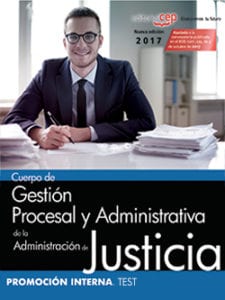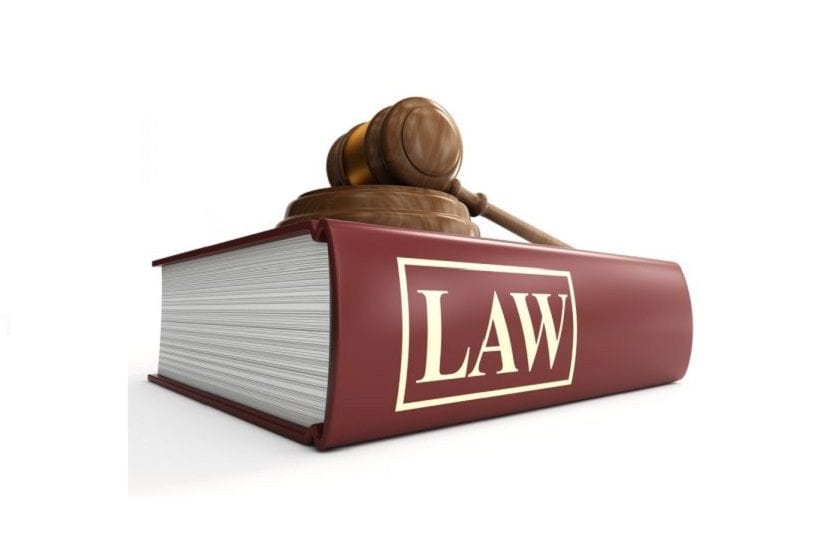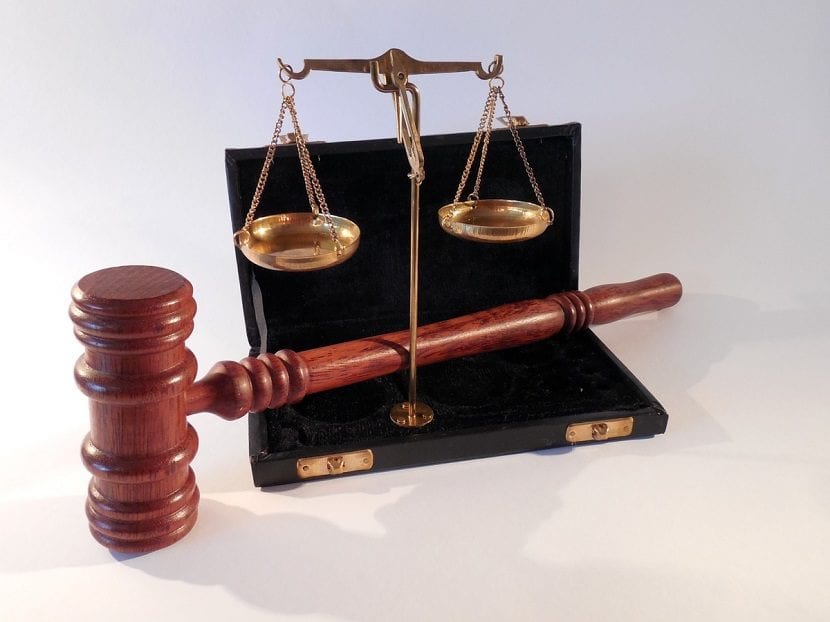When we think about working in the different positions of the Administration of Justice, we have to spend a few justice oppositions. Within them, we find three positions to take into account and of which we will talk to you in depth today, so that you can prepare your exams in the best possible way.
Agenda oppositions of justice
For Procedural Management
| Procedural management - Free turn | |

|
Book Pack
Includes syllabi, tests, practical assumptions, mock exams and access to free online resources. Agendas Buy Vol. I> Test Other resources |
| Procedural management - Internal promotion | |

|
Book Pack
Includes syllabi, tests, practical assumptions, mock exams and access to free online resources. Agendas Other resources |
For Procedural Processing
| Procedural processing - Free turn | |

|
Book Pack
Includes syllabi, tests, practical assumptions, mock exams and access to free online resources. Agendas Other resources |
| Procedural processing - Internal promotion | |

|
Book Pack
Includes syllabi, tests, practical assumptions, mock exams and access to free online resources. Agendas Other resources |
For Legal Aid
| Judicial aid | |

|
Book Pack
Includes syllabi, tests, practical assumptions, mock exams and access to free online resources. Agendas Other resources |
Procedural and Administrative Management Body

Requirements
These oppositions belong to Group A2Therefore, to be able to present yourself to them, you need a Diploma, Technical Engineering or similar. In addition, you must be over 18 years of age, with Spanish nationality, not be disqualified to perform the functions and not have a record.
Extraordinary
The number of places has been increasing for the judicial examinations. So it not only focuses on the body of Procedural Management, but on the other two. In 2016 a very high number of places were obtained, while in 2017 more than 3.500. While for 2018 3.593 were offered. Apparently, the good news is that the places will be accumulating. So at the beginning of 2019, a new call will appear, with a record of places.
It is estimated that the examinations of the same take place in the middle of the year 2019, as has happened in previous years. It is true that all these data in the form of figures cover the three main bodies of the judicial oppositions. Because in Procedural Management, the places go down slightly. Of all of them, only 506 have been summoned. Now it only remains to wait for the new summons that you can find on the website of the Ministry of Justice.
Agenda
Part I: Constitutional law, fundamental rights and the organization of the State.
- Topic 1: Spanish Constitution of 1978.
- Topic 2: Right to equality and non-discrimination. Protection measures against gender violence.
- Topic 3: Government and Administration.
- Topic 4: Territorial organization of the State.
- Topic 5: The European Union.
Part II: The organization and structure of the judiciary.
- Topic 6: Power of attorney.
- Topic 7: Organization and jurisdiction of the courts and tribunals I.
- Topic 8: Organization and jurisdiction of the courts and tribunals II.
- Topic 9: Justice of Peace.
- Topic 10: Citizens' rights before justice.
- Topic 11: The modernization of the judicial office: the new judicial office.
- Topic 12: Judicial secretary.
- Topic 13: Corps of civil servants at the service of the Administration of Justice.
- Topic 14: General Corps I
- Topic 15: General Corps II.
- Topic 16: Syndical freedom. Right to strike. Health and prevention of occupational risks.
Part III: Legal proceedings
- A) Common rules for all civil proceedings.
- Topic 17: General questions on civil process I
- Topic 18: General questions on civil process II
- Topic 19: Jurisdiction and jurisdiction.
- Topic 20: Place and time of the judicial proceedings.
- Topic 21: The procedural acts of the judge and court clerks.
- Topic 22: Acts of communication with other courts and authorities.
- Topic 23: Acts of communication to the parties and other participants in the process.
- Topic 24: Judicial and documentation file.
- B) Civil procedures
- Topic 25: Declarative procedure in the Civil Procedure Law.
- Topic 26: Ordinary trial.
- Topic 27: Verbal judgment.
- Topic 28: Special processes I: Procedures for the judicial division of assets.
- Topic 29: Special processes II: Payment for payment process and exchange judgment.
- Topic 30: Marriage processes and their classes. Process for the incapacitation of people.
- Topic 31: Voluntary jurisdiction procedures.
- Topic 32: The resources.
- Topic 33: Extraordinary resources.
- Topic 34: Forcible execution.
- Topic 35: Monetary execution.
- Topic 36: Enforcement procedure.
- Topic 37: Non-monetary executions.
- Topic 38: Precautionary measures.
- Topic 39: Costs and procedural expenses.
- C) Civil Registry
- Topic 40: Civil Registry I
- Topic 41: Civil Registry II
- Topic 42: Civil Registry III
- D) Criminal procedure
- Topic 43: Criminal procedural system
- Topic 44: Parties to the criminal process.
- Topic 45: Summary.
- Topic 46: Precautionary measures.
- Topic 47: Intermediate period.
- Topic 48: The proof.
- Topic 49: Abbreviated procedure.
- Topic 50: Procedure for the rapid prosecution of certain crimes.
- Topic 51: Process before the jury court.
- Topic 52: Judicial protection before the courts of violence against women
- Topic 53: Procedures of criminal responsibility of the minor.
- Topic 54: Processing of the trial on minor crimes.
- Topic 55: General system of appeals in criminal proceedings.
- Topic 56: Execution of criminal sentences.
- E) Contentious-administrative and labor procedures
- Topic 57: Contentious-administrative appeal I: Organization of the jurisdiction.
- Topic 58: Contentious-administrative appeal II: Procedural capacity, legitimization, representation and defense. Challengeable acts.
- Topic 59: Contentious-administrative appeal III: Preliminary proceedings, filing of the appeal and claim on the file. Location of the defendants and admission of the appeal.
- Topic 60: Contentious-administrative appeal IV: Demand and answer. Test, view and conclusions. Sentences.
- Topic 61: Abbreviated procedure in the contentious-administrative field.
- Topic 62: Resources in the contentious-administrative process.
- Topic 63: Special procedures.
- Topic 64: Provisions common to contentious-administrative procedures.
- F) Contentious-administrative and labor procedure
- Topic 65: Labor process.
- Topic 66: The avoidance of the process.
- Topic 67: Special processes.
- G) Commercial law regulations
- Topic 68: Contest of creditors.
Examen
- First exercise: It is a multiple choice questionnaire, with 100 questions plus 4 reserve questions. The minimum score is 50 points and the time for the test is 90 minutes.
- Second exercise: It is a practical case (before it was the third exercise). A total of 22 questions, where the minimum score to pass it will be 20 points and for this we will have only 45 minutes.
- Third exercise: Writing a text, where we will have to write about two topics chosen by the Court. The minimum score is 50 points to pass this test. We will have 4 hours to complete it.
If you opt for the Internal promotion, then there will only be two exercises instead of three.
- First exercise: It is multiple choice with 50 questions. The test lasts 60 minutes and your maximum score is 100 points.
- Second exercise: 10 questions to answer about a practical case. The maximum score is 50 points and the time to do it, 60 minutes.
After the position phase, the second phase of the contest is reached, where the merits are counted. Law degrees add 15 points, legal courses of up to 29 hours, add 3 more points. Whereas if these courses are from 30 to 59 hours, then 5 points will be added to you. Finally, if they exceed 60 hours, then the points go up to 8. Languages at level B1 or B2 are one more point. Two points if you have C1 or C2.
Functions and salary of an official of Procedural and Administrative Management
Among the functions we highlight:
- Prepare reference notes or car summaries
- Processing of procedures.
- Sign and certify appearances
When we mention the salary, it must be said that it can always depend on the specific job position, even within the Administration of Justice. But the gross monthly amount is around 2.000 euros and 2.800 euros.
Oppositions for Procedural Processing

Requirements
In this case, to be able to take the exams for personal processing, the baccalaureate or equivalent is required as a qualification and to be over 18 years of age. As happened in the requirements for the Procedural Management Oppositions.
Agenda
I Organizational part
- Topic 1: Spanish Constitution of 1978
- Topic 2: Right to equality and non-discrimination based on gender. Protection measures against gender violence.
- Topic 3: Government and administration.
- Topic 4: Territorial organization of the state in the constitution.
- Topic 5: European Union.
- Topic 6: Power of attorney.
- Topic 7: Organization and jurisdiction of the courts and tribunals I.
- Topic 8: Organization and competence of the courts and tribunals II.
- Topic 9: Citizens' rights before justice.
- Topic 10: The modernization of the judicial office: New judicial office.
- Topic 11: Judicial secretary.
- Topic 12: Bodies of civil servants at the service of the administration of justice.
- Topic 13: General bodies I
- Topic 14: General bodies II.
- Topic 15: Syndical freedom. Right to strike. Health and prevention of occupational risks.
II Part procedural law
- Topic 16: Declarative procedures in the civil procedure law: Ordinary and verbal trial.
- Topic 17: Execution procedures in the civil procedure law.
- Topic 18: Special processes in the civil procedure law.
- Topic 19: Voluntary jurisdiction.
- Topic 20: Criminal procedures I: Ordinary, abbreviated and jury.
- Topic 21: Criminal proceedings II: Trial of brief crimes, rapid trials and execution.
- Topic 22: Contentious-administrative appeal: Ordinary, abbreviated and special procedure.
- Topic 23: Labor process: Ordinary procedure, for dismissal and Social Security processes.
- Topic 24: Resources.
- Topic 25: Place and time of the judicial proceedings.Topic 26: Procedural acts of the judge and the court clerks.
- Topic 27: Acts of communication with other courts and authorities.
- Topic 28: Acts of communication to the parties and other participants in the process.
- Topic 29: Civil Registry I
- Topic 30: Civil Registry II
- Topic 31: Judicial and documentation file.
Calls for applications
We know that more than 2.000 places were offered for justice. But precisely for this body, of procedural processing, they only reached about 800 places. Of all of them, 56 have different points of territorial distribution.
Examen:
First exercise
- Part I: Multiple choice questionnaire with 104 questions. With 4 that will be reserve. This part lasts 75 minutes and is classified from 0 to 100 points. Correct answers add 1 point, while incorrect answers add 0,25. Remember that the unanswered ones do not score.
- Part II: 22 multiple choice questions about a practical case. This test lasts 45 minutes and its classification ranges from 0 to 40 points. Each correct answer will add 2 points, the incorrect answers subtract 0,50 points. While the unanswered, they will be 0,25 points. To pass this test you need 20 points. Otherwise, you will no longer be able to proceed to the next exercise or part of the exam.
Second exercise
It's about writing a text in Word. Both speed and format are valued. You have 15 minutes to do this part. Your score will be 30 points.
Internal promotion
All the places available for internal promotion of oppositions of procedural processing they are minors. We have 219 places, which are distributed in different autonomous communities. In order to access the internal promotion there are also a series of requirements:
- Be in possession of the bachelor or technical title.
- To be a career civil servant to the judicial aid corps.
- Accredit a seniority of about two years, either as a civil servant, interim or substitute.
The exam for internal promotion will consist of two exercises:
- First exercise: 50 multiple choice questions. You will have 60 minutes to complete this part. Each correct answer adds two points, and the faulty answer subtracts 0,5 points.
- Second exercise: Play a text in Microsoft Word on a computer. This test lasts 15 minutes. What is valued? Both the format and the speed of writing and development.
For the final score, the sum of these exercises will be made. But it must be taken into account that seniority in the position to be held will be valued, as well as other qualifications or approved courses.
Functions to be performed for the body of Procedural Procedure
- Preparation of minutes, as well as notifications or proceedings.
- Record the correspondence.
- Processing of different matters or appointments.
Salary
As with the other body of the oppositions of justice, the final salary can always vary. But it must be said that the gross and monthly salary it can be around 1800/2400 euros.
Oppositions for judicial assistant

Requirements
In this case we are facing a group C2 competitions. That is why in order to access them, we will need a school graduate or the equivalent qualification. In the same way as in the previous ones, you must be 18 years old and have Spanish nationality.
Extraordinary
In addition to the common points with the previous ones, it must be said that for the Judicial Assistance Oppositions they were about 525 seats. A total of 37 of those 525 were already reserved and the rest, again, are distributed nationally.
Agenda
I Part of the organization
- Topic 1: Spanish Constitution of 1978
- Topic 2: Right to equality and non-discrimination based on gender. Protection measures against gender violence.
- Topic 3: Government and administration.
- Topic 4: Territorial organization of the state.
- Topic 5: European Union.
- Topic 6: Power of attorney.
- Topic 7: Organization and jurisdiction of the courts and tribunals I.
- Topic 8: Organization and competence of the courts and tribunals II.
- Topic 9: Charter of citizens' rights before justice.
- Topic 10: The modernization of the judicial office.
- Topic 11: Judicial secretary.
- Topic 12: Bodies of civil servants at the service of the administration of justice.
- Topic 13: General bodies I
- Topic 14: General bodies II.
- Topic 15: Syndical freedom. Right to strike. Health and prevention of occupational risks.
II Procedural Law
- Topic 16: Declarative procedures: Ordinary trial, verbal trial and special procedures.
- Topic 17: Execution procedures: monetary and non-monetary.
- Topic 18: Criminal proceedings: Ordinary, abbreviated, trial on minor offenses and jury.
- Topic 19: Contentious-administrative procedures: ordinary, abbreviated and special.
- Topic 20: Labor process - Ordinary procedure and for dismissal. Social security processes.
- Topic 21: Place and time of judicial proceedings.
- Topic 22: Procedural acts of the judge and the court clerk. Decrees of the Fiscal Ministry.
- Topic 23: Acts of communication with other courts and authorities.
- Topic 24: Acts of communication to the parties and other participants in the process.
- Topic 25: Civil registration.
- Topic 26: Concepts of judicial file and documentation.
Examen
In this case, for the competitive examinations of Judicial Assistant, you only have to pass an exam. But yes, it will consist of two parts or two exercises to take into account.
- First exercise: Test theoretical type and eliminatory. It will be multiple choice with 104 questions. Four of them will remain as a reserve. The score will be from 0 to 100 points. The correct answers will add one point, those that are incorrect will subtract 0,25 points and the unanswered ones will not be scored. You have about 75 minutes to complete this part of the exam.
- Second exercise: The practical assumption. There are 52 questions in total, since two of them are reserved. The correct ones add two points, the non correct ones subtract 0,5 points. In this part, it must be taken into account that unanswered or blank questions will subtract 0,25. For this part you have a time of 60 minutes.
If the autonomous community has an official language, there may be one more test in that language to check its level. These competitions also have the 'contest phase'. In it, the merits of the opponent will be taken into account (titles, diplomas or approved courses).
Functions to be performed and salary for the Judicial Aid Corps
Among the functions that a judicial assistant can perform, we will highlight the following:
- Maintain order in rooms.
- Comply with liens as well as releases.
- They can perform functions as judicial police.
- File of judicial files.
As gross and monthly salary, it must be said that a an official of this body will charge between 1600 euros and 2000 euros.